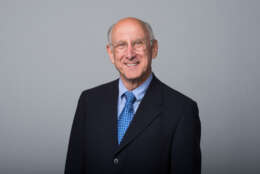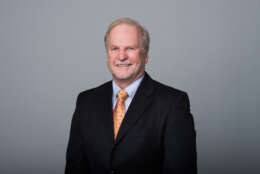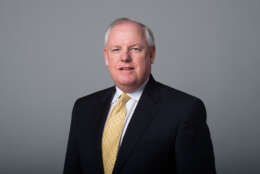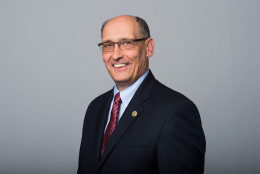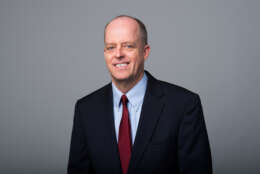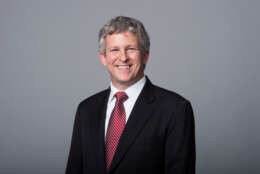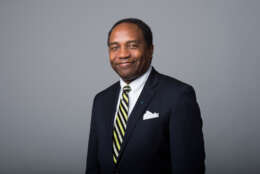People
-
Dr. Steven Rosenberg believed in the viability of immunotherapy as an effective treatment for cancer when few others would.
July 03, 2015 -
In the 1970s most people in the medical community didn't believe it was possible to use a patient's own body to attack cancer cells and slow tumor growth. Dr. Steven Rosenberg did and advanced the field of immunotherapy. Dr. Rosenberg is chief of the surgery branch of the National Cancer Institute and a finalist for a Service to America Medal in the career achievement category. He tells In Depth with Francis Rose how immunotherapy works and how its changing how doctors treat cancer.
July 03, 2015 -
Jeff Neely, the former General Services Administration official at the center of the Western Regions Conference scandal, will spend three months in prison and three months under home confinement. Neely had been placed on administrative leave in 2011 and later left the agency following revelations of a lavish $822,000 training conference held in Las Vegas.
July 01, 2015 -
With the ToxCast Lab, EPA scientists had new tools at their disposal that allowed them to more efficiently and cost-effectively screen chemicals for potential toxic effects. It also helped to reduce the need for laboratory animal testing of chemicals.
June 30, 2015 -
As the deputy associate administrator in the General Services Administration’s Office of Citizen Services and Innovative Technologies, Conrad oversaw the development of key initiatives including the cloud security standard and Data.gov.
June 30, 2015 -
The FEMA Operation Precious Cargo Team was dispatched last summer to the South Texas border to coordinate the government's response to a massive humanitarian crisis.
June 30, 2015 -
DHS' Science and Technology Directorate worked with scientists at NASA-JPL to create FINDER, a portable piece of technology to help first responders.
June 30, 2015 -
As team leader for USAID's Syrian food assistance program, Rob Thayer has been instrumental to helping to bring life-saving help to the region, with the U.S. providing $1.1 billion in food assistance so far.
June 30, 2015 Ten years ago, the Environmental Protection Agency only knew whether a small fraction of the 80,000 chemicals in use were hazardous to people or the environment. That changed in 2005 after Robert Kavlock, deputy assistant administrator for science in the EPA's Office of Research and Development, established the ToxCast Lab. It can quickly screen large numbers of chemicals for health effects. For that, he was named one of the 33 finalists for this year's Service to America Medals. He joined Tom Temin on the Federal Drive to further discuss his work, and the problems it solved.
June 30, 2015-
Breaking news on Monday: NASA is getting a new deputy chief information officer. Sources say Renee Wynn is moving to the space agency after spending the last four years as the Environmental Protection Agency’s deputy…
June 30, 2015 -
Jacob Moss, senior adviser at the Environmental Protection Agency, has been working with the State Department on a project to develop cleaner and more efficient stoves that can be distributed to millions of homes.
June 29, 2015 -
Personal experiences inspire Griffin P. Rodgers to become a doctor and develop lifesaving treatments.
June 29, 2015 -
WASHINGTON (AP) — The Senate voted on Monday to confirm a new leader for the Transportation Security Administration in the wake of reports of startling security gaps at U.S. airports. Coast Guard Vice Adm. Peter…
June 23, 2015 -
First responders will soon have access to a new tool for locating survivors of natural disasters. The portable technology detects the heart beats of people and animals buried in rubble. John Price is the program manager of the Science and Technology Directorate at the Department of Homeland Security. He helped develop this technology, and was named one of 33 finalists for this year\'s Service to America medals. He joined Tom Temin on the Federal Drive with more on his project.
June 23, 2015

